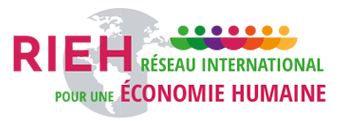 Actions des territoires en marche
Actions des territoires en marche 

Sri Lanka
13 districts de Sri-Lanka
Renforcement de la capacité des communautés rurales à maîtriser leur vie (empowerment), en vue d’un développement durable intégré
Les populations des districts de Karuwalagaswewa et Polpithigama dans le Nord Ouest de Sri Lanka vivent dans des conditions très difficiles. La pauvreté conduit une part importante de la population et notamment les jeunes, hommes et femmes à émigrer au Moyen-Orient ou vers les zones franches urbaines. Avec des risques élevés de subir des violences et d’être victimes de trafics. La pollution des sols a conduit des consommations alimentaires dangereuses pour la santé avec notamment de nombreux cas de cancer du rein. La région reste en outre marquée par les conséquences durables de la guerre civile qui a sévie pendant de nombreuses années et par celles du Tsunami de 2004. La consommation d’alcool et de drogues fait des ravages parmi les jeunes. En outre les conditions de protection des éléphants sauvages créent un enjeu conflictuel avec des morts et des destructions de récoltes.
L’action territoriale doit donc prendre en compte en même temps la justice climatique, la souveraineté alimentaire, la justice de genre, la dignité humaine et la paix.
Elle s’appuie notamment sur un Conseil régional (Pradeshiya Sabha), où sont représentées les organisations de la société civile, les autorités locales, les fonctionnaires des administrations locales, les responsables des services de santé, les agents de l’agence de développement Samurdhi (Prospérité) ; sur une agence de participation, « People’s Participatory Integrated Area Development Strategy » (PPIADS) et un Forum citoyen.
Les principales activités sont la formation, l’accompagnement d’entreprises alternatives, et notamment dans un tourisme respectant l’environnement et les cultures locales.
La principale organisation qui anime l’action est NAFSO (NATIONAL FISHERIES SOLIDARITY MOVEMENT).
National Fisheries Solidarity Organisation (NAFSO)
NAFSO est un mouvement de pêcheurs qui travaille pour mettre en œuvre des modèles de développement durable, particulièrement dans les secteurs de l’agriculture et de la pêche du Sri Lanka de l’après-guerre. Ses activités visent également à promouvoir la réconciliation entre les différents groupes du pays et à soutenir l’autonomisation des groupes les plus vulnérables, notamment les personnes déplacées, les minorités religieuses et ethniques, ainsi que les femmes et les filles. NAFSO compte actuellement 15 organisations partenaires dans 13 districts administratifs, ainsi que 12 000 membres.
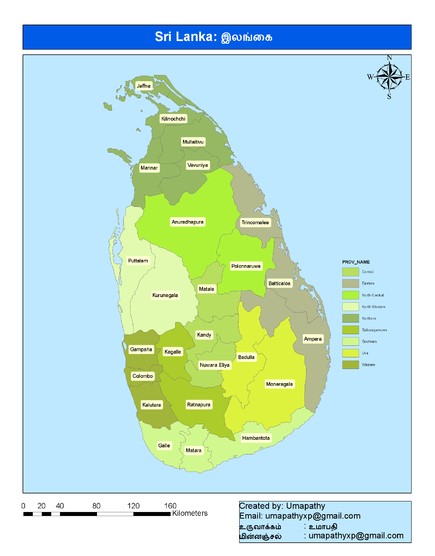
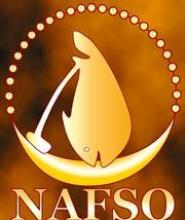
EMPOWERMENT OF RURAL COMMUNITIES FOR AN INTEGRATED SUSTAINABLE DEVELOPMENT
SRI LANKA - North Western Province (Karuwalagaswewa & Polpithigama Districts)
Main characteristics of the territory:
- Faced prolonged civil wars for nearly three decades and affected by Southeast Asian Tsunami (2004).
- Rampant social exclusions, marginalizations and negligence in addressing the basic needs.
- Decline in agricultural income in recent times due to serious drought and deteriorating climate conditions.
- Low levels of education of adults and no effective medium to find any other alternative avenues, particularly for their children
- Paddy cultivation is the main source of income and ‘chena’ cultivation (slash & burn) common. Fishing is also a supplementary income sources for the communities in both the locations.
- High consumption of alcohol and drug abuse among youth
- High rate of school dropouts
- High rate of unemployment and poverty
- Loss of lives due to human-elephant conflict, and accidents against wild-elephants
Human Economy issues:
- Due to low income from the farming, the income of most families is not sufficient for their survival.
- Large number of women (mothers) had migrated to West Asian countries for employment as domestic helps and house maids. Girls migrated to the ‘free trade zones’ in garment factories and other export processing industries. This situation has become a major social issue in relation to child care as the number of child abuses went up drastically.
- High usage of synthetic pesticides has also resulted in kidney problems (Chronic Kidney Disease) among large number of rural male population in the area compounding the suffering further.
Main objective of the action:
- NAFSO intends to widen the youth leadership base for engagement in integrated and sustainable area-development by providing capacity building and other enabling opportunities taking into account climate justice, food sovereignty, gender justice, human dignity, harmony and peace.NAFSO intends to widen the youth leadership base for engagement in integrated and sustainable area-development by providing capacity building and other enabling opportunities taking into account climate justice, food sovereignty, gender justice, human dignity, harmony and peace.
- NAFSO intends to widen the youth leadership base for engagement in integrated and sustainable area-development by providing capacity building and other enabling opportunities taking into account climate justice, food sovereignty, gender justice, human dignity, harmony and peace.
Main actors:
- Village traditional leaders,
- Leaders of the people’s organizations (farmers, fishers folks)
- Rural development groups, savings schemes coordinators
- Pradeshiya Sabha (the regional council) that is involved in the local governance, Samurdhi development officers, divisional secretariat officials, health officers
- Agriculture researchers, social activists, school teachers, and women leaders of both districts.
Main activities:
- Youth training on ecological agriculture, environmental sensitivities and aiming to obtain community participation as well as strengthening ‘youth clubs’
- Skill and leadership training for employment generation
- Formation of area wise community network and strengthening the unity of the local community
- Promote Community Tourism through Home-Stays models
- Unionizing women and fish-workers
- ‘People’s Participatory Integrated Area Development Strategy’ (PPIADS) for strengthening the local communities and promoting collective decision-making mechanisms in the community development process with the collaboration of government agencies, non- government organizations and local people’s organizations.
- Establishment of ‘Citizen Forum’ which is the core group that articulates the needs of the local communities, while keeping constructive relationship with Pradeshiya Sabha (regional administration) institutions.
- Establishment of plants nurseries (The ‘Blue Green Gardens’) in partnership with ‘Praja Sahayogitha Sansadaya’, a regional organization located in Polpithigama in Kurunegala district with the purpose of providing plants and saplings to the local welfare organizations.
- Development of ‘seed banks’ for the promotion of organic cultivation in partnership with ‘Praja Shakthi Development Foundation’ located in Karuwalagaswewa region.
- Development of ‘farmers societies’ based on the organic cultivation, connecting different farmers groups in the area to protect the local seeds which are gradually disappearing from the hands of local communities.
Organization that animates the territorial dynamics:
- Field team of NAFSO (NATIONAL FISHERIES SOLIDARITY MOVEMENT), Sri Lanka in partnership with a team of local community based organizations (CBOs), regional government officials, and grassroots civil society associates of the territory.
Organization that animates the investigations:
- INHE-Asia office in collaboration with INHE-Sri Lanka (evaluation & monitoring team), the Director and core committee of NAFSO, Sri Lanka
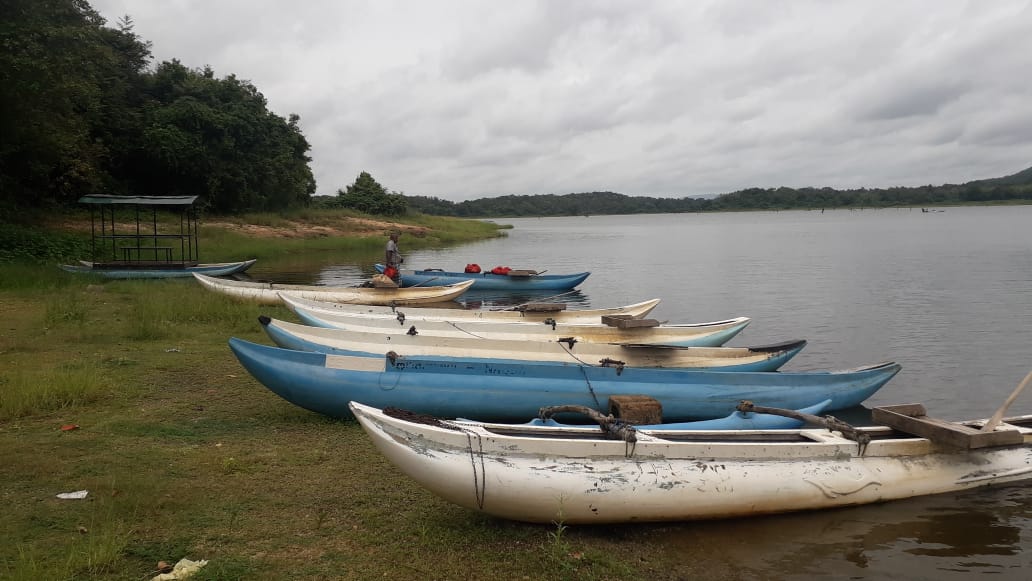
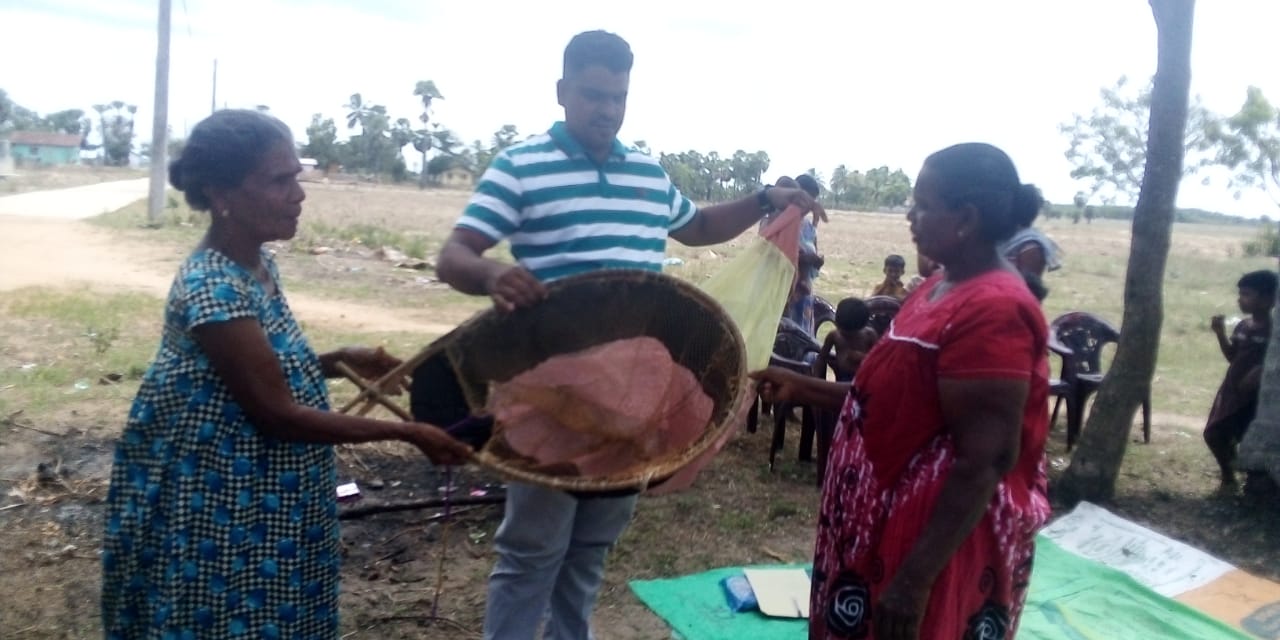
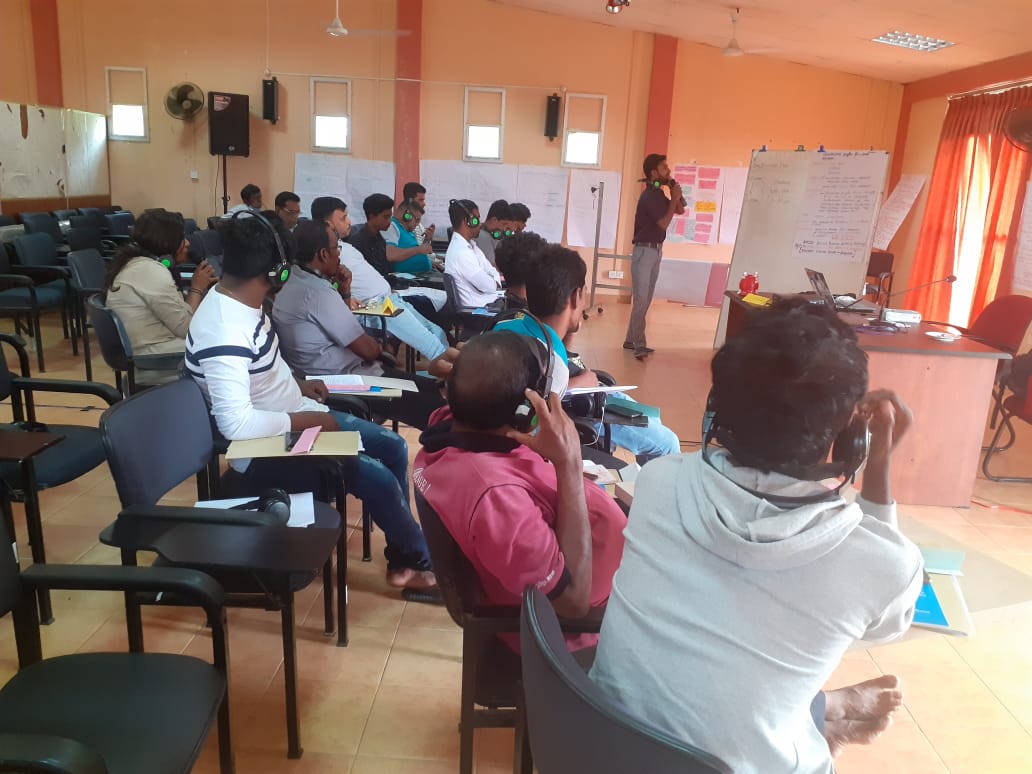
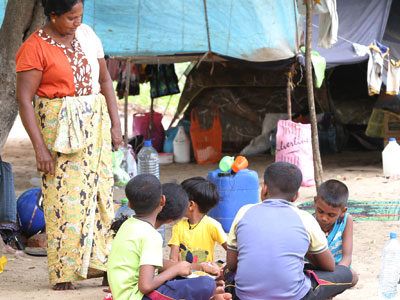
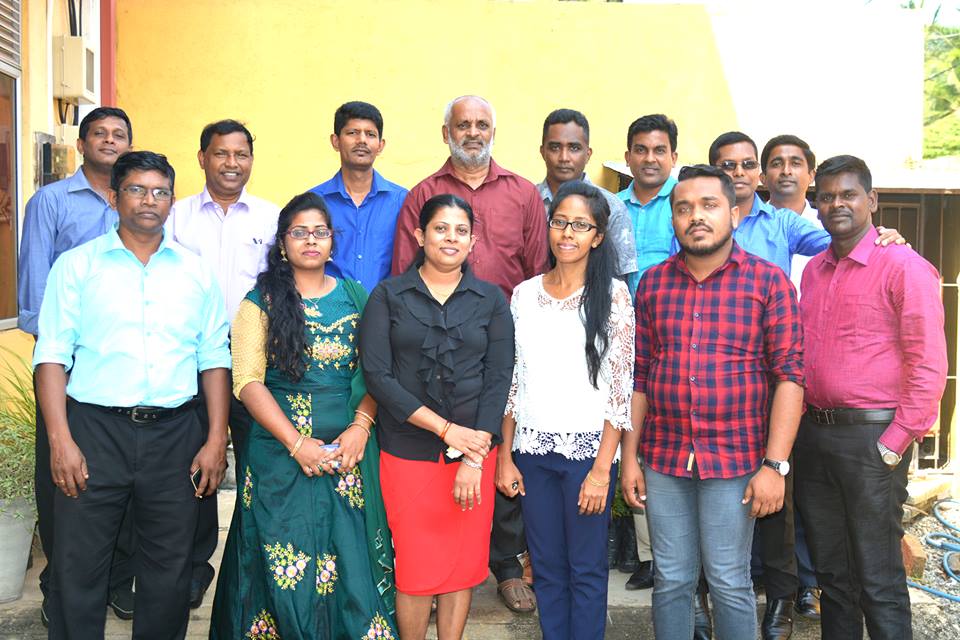
Devenir sympathisant
Vous pouvez devenir un sympathisant de l’action menée sur les 13 districts de Sri-Lanka.
En étant sympathisant,
- Vous êtes alerté dès qu’une information sur cette action paraîtra sur le site
- Vous pouvez faire connaître autour de vous l’action
- Vous pouvez apporter votre soutien financier à l’action
- Vous pouvez adresser aux porteurs de l’action des demandes d’information, leur poser des questions
- Vous pouvez proposer en fonction de vos compétences un appui technique
- Si vous vous rendez sur place, vous serez accueilli et pourrez découvrir concrètement comment l’action se déroule
- En fonction des opportunités, vous pourrez être convié à des rencontres avec les porteurs de l’action.





